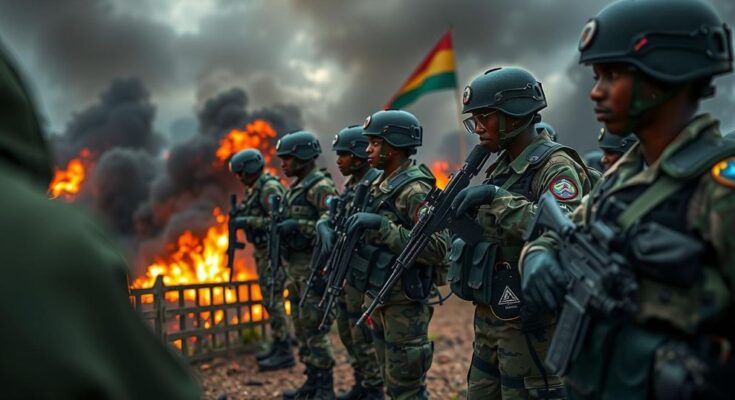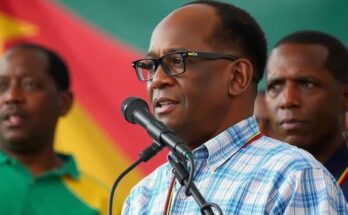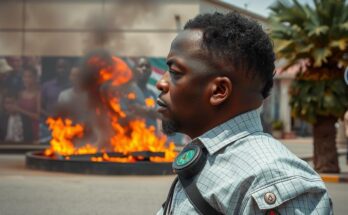Mozambique faces unrest following the deployment of the army to control protests against the Frelimo party, which has been accused of electoral fraud in the recent elections. Police have clashed with demonstrators, leading to multiple deaths and a charged political atmosphere. The situation is under scrutiny from international observers and regional bodies.
Mozambique is experiencing heightened tensions as the army has been deployed to assist police in quelling widespread protests against the ruling Frelimo party, which recently secured its continued governance in the controversial October 9 elections. Following allegations of election rigging, demonstrators took to the streets demanding accountability, leading to severe clashes with security forces armed with tear gas and rubber bullets. Maximum precautions have been enacted, particularly around key locations such as the presidential palace, and the atmosphere remains charged, with many residents choosing to remain indoors. The Frelimo party’s ability to maintain power for 49 years has drawn significant criticism, particularly from opposition groups that allege electoral malpractice, including ballot box stuffing. Observers from various international organizations have echoed concerns regarding the integrity of the electoral process. The most recent declaration confirming Frelimo’s candidate, Daniel Chapo, faced immediate backlash, sparking a series of protests resulting in deaths attributed to police actions, with rights organizations suggesting even higher casualties than reported. In addition to the protests, tensions escalated following the assassination of two prominent opposition figures, further inflaming public sentiment against Frelimo. The Southern African Development Community has scheduled a summit regarding this situation, and neighboring South Africa has increased security measures along its border with Mozambique due to the unrest.
The political climate in Mozambique has been tense, especially following the recent elections which saw the ruling Frelimo party continue its long-standing dominance despite widespread allegations of fraud. Since gaining independence from Portugal in 1975, Frelimo has faced accusations of manipulating election outcomes to retain control. The current unrest stems from a perceived lack of fair electoral practices, prompting protests against the government and a response from security forces that has resulted in violence and fatalities.
The ongoing protests in Mozambique highlight a significant discontent with the ruling party’s long-standing grip on power amid allegations of electoral fraud. The deployment of army personnel to manage unrest indicates a serious level of instability within the country. As the international community escalates its attention to the crisis, the response of both the Mozambican government and the opposition could either alleviate or exacerbate the current situation.
Original Source: apnews.com




